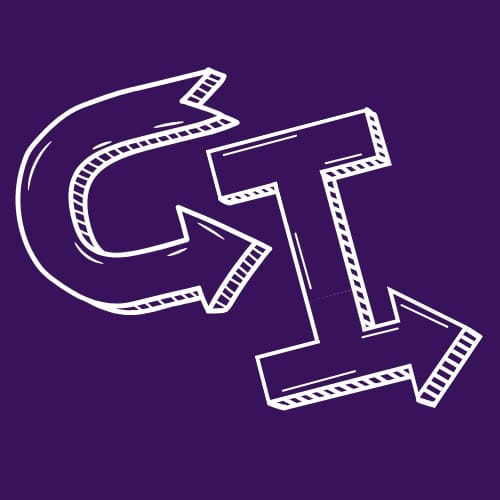Finding Quality News

By Duane Adamson
I am often asked by students and friends how to find the most objective news and information about political events. Words like bias and "fake" are thrown around frequently by many on different sides of political debates. Quite divergent "news" often exists about the same event making it hard to know where to find the most factual information.
With apologies for the length of the list below, I've put together a little "this I believe" list about the best sources of news and political information. If you follow these criteria, I believe you will find the most factual, objective information as you study politics when time allows in your own life.
1) AVOID IDEOLOGICAL “NEWS”: Seek information from non-partisan, non-ideological sources. Ideological/partisan sources have a stated mission of shaping facts and events to fit their political views. Don’t expect to get accurate news from a source offering a self-stated or assumed progressive, conservative, or libertarian viewpoint. Accuracy is not their primary purpose.
2) CHARACTERISTICS OF BEST NEWS SOURCES: No news outlet is perfect but the best follow certain journalistic standards. The best ones have editorial boards that take an active role in insuring objective journalism. These boards and editors make public corrections to stories when necessary. Some go further and have “Ombudsmen” who are tasked with checking the news outlet’s stories and views. Best news stories generally include multiple positions and perspectives – they tell you what each side of an issue is saying and then present you with accurate information surround the issue to help you evaluate those positions.
3) DIFFERENTIATE BETWEEN OPINION AND NEWS: News outlets often have both opinion pieces as well as hard news stories. Quality news sources always differentiate between their opinion and hard news stories. Opinion pieces are what they are – opinions of the facts, not summaries of what the facts present. Avoid those sources that conflate opinion pieces as news.
4) MEMES AND SOCIAL MEDIA: Memes are often funny and sometimes clever but 99.9% of the time are distortive and offer false versions of real events. Should seem obvious but remember that “news” on social media is more often wrong than correct, often intentionally wrong as many studies have shown.
5) VERIFY USING PRIMARY SOURCES: When considering news and comments from political actors, ask yourself, are there primary documents you can review? Are there transcripts, records, and data that could be objectively used to verify what individuals and stories are arguing? Be willing to fact check.
6) WEIGH EXPERT PERSPECTIVES: Like quality news outlets, experts aren’t always right. However, it is worth considering whether there is a consensus or at least commonly shared understanding of the facts of an issue among non-partisan, non-ideological experts or professionals in the related field. Do this for climate change, vaccines, impeachment, diplomacy, trade policy, economics, etc. Is there verification of key facts across multiple quality sources? Look at the careers and past statements of those experts. Are they honest brokers and respected professionals within their fields?
7) BE WARY OF “WHATABOUTISMS”: Avoid disconnected “whataboutisms” where the writer/speaker tries to draw spurious connections to unrelated cases or events. These non sequiturs are often attempts by one side or another to simply “muddy the water” and draw you away from the relevant facts at hand. In other words, they intend to make it all so messy that it is impossible to find the “clean” truth among all the mess they’ve created.
8) CONSPIRACIES & OCHAM’S RAZOR: Large conspiracy theories are usually just that—conspiracies that are nothing more than conjecture. They are almost always false. While large “conspiracy-type” events can occur, more often than not Ocham’s Razor is correct. (The simplest or most direct answer is usually right.)
9) BE SELF-REFLECTIVE: In weighing all of this competing information, be wary of one’s own ideological lenses or views. Confirmation bias is easy to fall into. In fact, it’s quite natural. That’s why people often end up consuming information from their preferred party or ideology. It just feels better. Such sources always tell us we are right and who doesn’t like that? Truth and facts are often complex; they should at least on occasion force us to think through things, to wrestle with a bit of cognitive dissonance. We should expect to grow, evolve, and change perspectives as we acquire more and better information.
The views expressed in this guest article do not necessarily reflect the views of the staff of The Civility Initiative. The purpose of guest articles is to to help our readers more fully understand and see current issues from as many different vantage points as possible.
About the Author: Duane Adamson has been interested and involved in politics since working on a state legislative campaign as a teenager. Over the years, he has worked on numerous campaigns, served in government positions, and has taught political science for nearly two decades. He has taught at universities in Virginia, Utah, and Idaho. Currently, Adamson is the Department Chair of History, Geography and Political Science at Brigham Young University–Idaho. He earned a bachelor’s in Political Science from the University of Utah, a master’s in Political Science from Utah State University, and did further graduate studies in Foreign Affairs at the University of Virginia. His opinions above and in other public statements on politics are his own.
